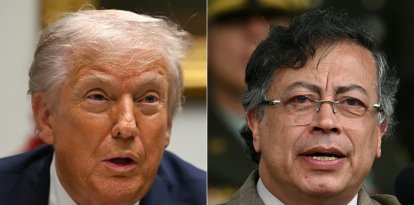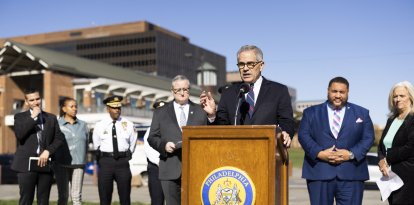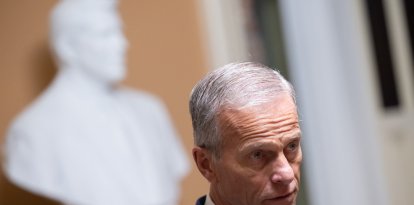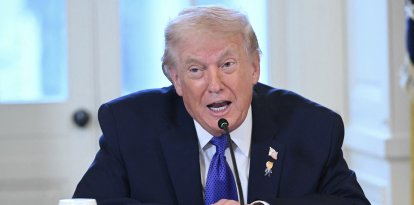Why hasn't the White House released Biden's interview with Prosecutor Hur yet? The answer is artificial intelligence
The Department of Justice hid behind "AI deepfakes" to withhold the audio requested months ago by the House of Representatives.

v
The White House still has not delivered the audios of the interview between Joe Biden and prosecutor Robert Hur. Despite the insistence of the House of Representatives and various media outlets, the government still refuses to publish what was requested. However, following a series of requests made through legal channels, they finally revealed the reason for the refusal.
Institutions such as CNN, Judicial Watch and Heritage Foundation, among others, requested access to the audio under the Freedom of Information Act. However, the requests have been rejected.
The reason? The Department of Justice (DOJ) issued a court filing to explain the non-disclosure of this material.
"Disclosure of that record is unwarranted. Release of the audio recording would threaten critical law enforcement interests by chilling the potential cooperation of witnesses in current and future sensitive investigations. In addition, disclosure would constitute a significant invasion of privacy. These privacy harms are amplified by the threat of malicious manipulation of audio files that has recently become much more acute," the DOJ explained.
As for that "malicious manipulation," fake audio made with artificial intelligence may be much easier to create with public figures like Biden since there is already a lot of material with their voices circulating. Furthermore, these "deepfakes" made with artificial intelligence could eliminate or distort the meaning of what the speaker said.
“If the audio recording at issue here were released, that would exacerbate the foregoing concerns, because it would demonstrate to future witnesses that recordings of interviews may be released (and thus become highly public) even for investigations that result in no criminal charges,” added Bradley Weinsheimer, deputy attorney general.
In turn, the material should have been delivered on February 19, at the express request of Congressmen Jim Jordan, James Comer and Jason Smith, chairmen of the Judiciary, Oversight and Ways and Means Committees, respectively.
Specifically, the request requested the release of all documents and communications, including audio and video recordings, related to Hur's interview with Biden, as well as those from the interview conducted with the president's ghostwriter, Mark Zwonitzer.
Robert Hur's report on Joe Biden
After more than a year of interviews and investigation, the special counsel released his 379-page report in which he wrote that Biden "withheld and voluntarily disclosed classified material after his vice presidency when he was a private citizen." However, he clarified that it was not enough to file charges.
The report also included detailed photographs of documents in the president's garage, which included "top secret/sensitive compartmentalized information" related to foreign policy in Afghanistan.
Hur dedicated one of the sections of the letter to the president's memory, which, he wrote, "seemed to have significant limitations." He came to this conclusion, citing an interview and recorded conversations with his ghostwriter.
"I didn't remember when I was vice president. He couldn't remember, even several years apart, when his son Beau died. And his memory seemed hazy when describing the debate over Afghanistan, which was once so important to him," the report states.
"We have also considered that, in a trial, Mr. Biden would probably present himself to a jury, as he did during our interview with him, as a friendly, well-intentioned, elderly man with a bad memory," Hur said.

























